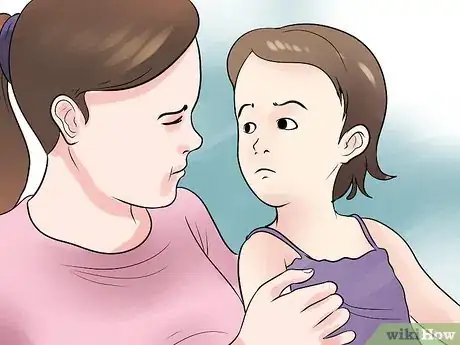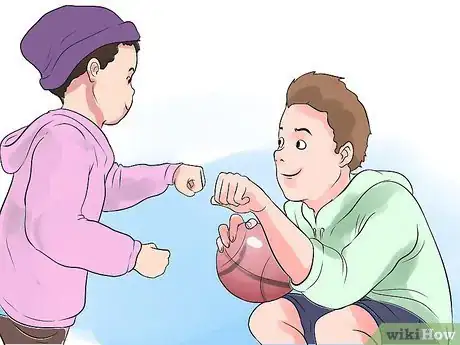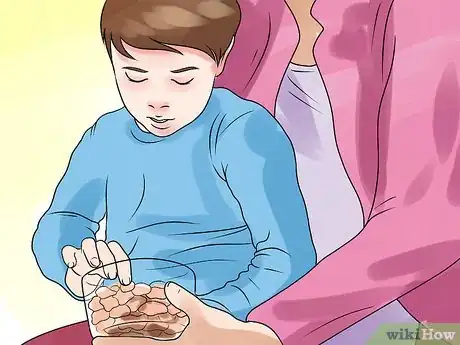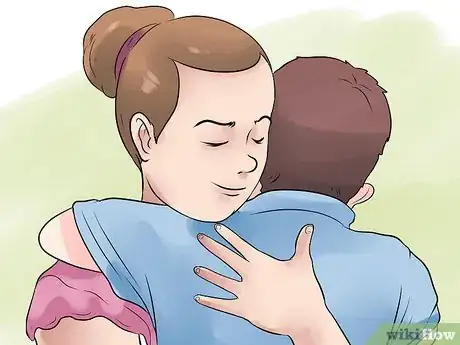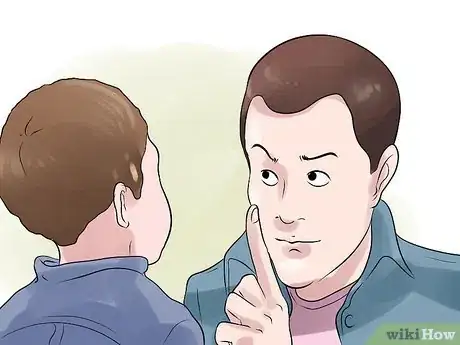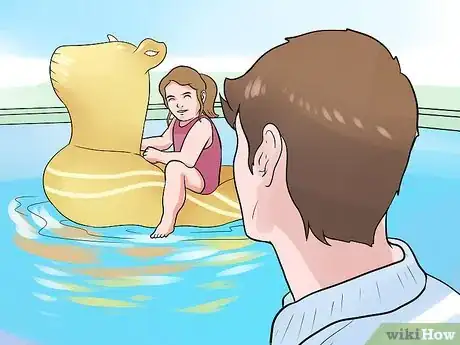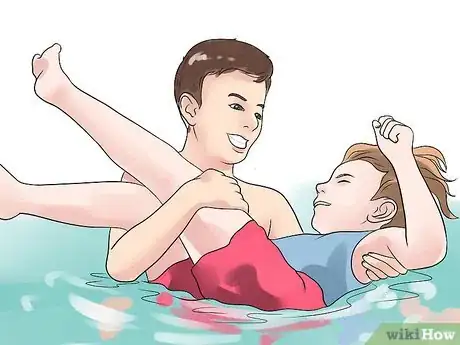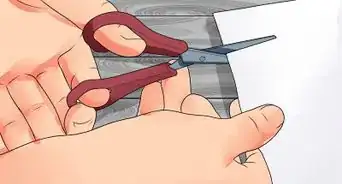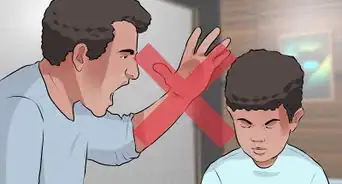X
wikiHow is a “wiki,” similar to Wikipedia, which means that many of our articles are co-written by multiple authors. To create this article, volunteer authors worked to edit and improve it over time.
This article has been viewed 77,821 times.
Learn more...
Being a parent is stressful but rewarding, and in order to be a good parent you must make good children. There's no universal definition for Good Children, but this article will provide some general advice. Pick the steps that you feel are most applicable.
Steps
-
1Teach your children the rules of your household (and those you want them to abide by). It may sound harsh, but you must bring boundaries into the house and do it early, because then they will be less upset when you punish them. Physical punishments are illegal in some locations and many people, including child care experts, don't believe in slapping children. Look into punishments and behaviour adjustment techniques such as the naughty-steps method, scoldings and the warning-warning-punishment technique.
-
2Read. Read to your children and with your children. Do not let them get used to watching TV all day. Read them to sleep, and also give them educational books that teach them to read and write themselves.Advertisement
-
3Be a good example to your children. Whilst your offspring are obviously not simian in nature, to a greater or lesser degree, monkey see-monkey do. You should not do something that you wish your children not to do, even when they are not in your presence.
-
4Teach them to be healthy and widen their tastes. Feed your children with fruit and vegetables, of as many different varieties as you can. This will, possibly, help to make them good children. Teach them to brush. Encourage them to brush their teeth and hair in the mornings and nights. You should widen their taste to different foods but don't force your child to eat things they don't enjoy the taste off.
-
5Love and respect your children. As your child gets older they want more respect and privacy but at the same time they deep-down want your love. Learn to respect and give them a more mature love that doesn't involve kissing.
-
6Never go by the saying "If you want to act like a child, I'll treat you like one". It doesn't work and only ends up with older children getting angrier.
-
7Educate them. You should be asking them what they did in school today, what they enjoy and don't and especially what they find difficult.
-
8Let them be themselves. Don't choose their bedroom layout for them, or tell them what jobs they can't and can do, it makes them feel useless and annoyed, and they may also be afraid they will upset you.
-
9Make older siblings feel involved in the younger siblings lives. Older siblings should not be left out or be made to feel like they must be an example. Let older siblings feel involved in younger siblings being brought up- but don't shove the responsibility of being a parent on them.
Advertisement
Community Q&A
-
QuestionHow do I get adopted children to feel at home?
 Graceak05Community AnswerAt first, give the child some space. Respect their privacy so they can respect you. Do not rush them into the ways of your home but introduce them slowly until they are comfortable with your house schedule. Do not talk to them about their past. Either let them talk to you about it or wait some months or years until the child is showing signs of getting along but even then discuss it subtly. Let them feel included, e.g letting them choose the meal you will eat, or what you can watch on the TV or by making key decisions with the child.
Graceak05Community AnswerAt first, give the child some space. Respect their privacy so they can respect you. Do not rush them into the ways of your home but introduce them slowly until they are comfortable with your house schedule. Do not talk to them about their past. Either let them talk to you about it or wait some months or years until the child is showing signs of getting along but even then discuss it subtly. Let them feel included, e.g letting them choose the meal you will eat, or what you can watch on the TV or by making key decisions with the child. -
QuestionEach time I ask my son what he did in school his answer is "I don't know." What can I do?
 Community AnswerTalk to his teacher about what he is doing at school and if he has the same issues there.
Community AnswerTalk to his teacher about what he is doing at school and if he has the same issues there. -
QuestionMy 7-year-old- daughter used to be very obedient and well-mannered. I moved and our living situation has changed, and I've seen some very negative changes in her behavior. What do I do?
 Community AnswerAny change to a family such as moving, people entering the family, or people exiting the family will have an effect on your child. Sit down with your daughter and have a heart-to-heart where you try to get to the root of her behavior changes -- not in an accusing manner, but in a way that shows how much you love her and how concerned you are.
Community AnswerAny change to a family such as moving, people entering the family, or people exiting the family will have an effect on your child. Sit down with your daughter and have a heart-to-heart where you try to get to the root of her behavior changes -- not in an accusing manner, but in a way that shows how much you love her and how concerned you are.
Advertisement
About This Article
Advertisement
